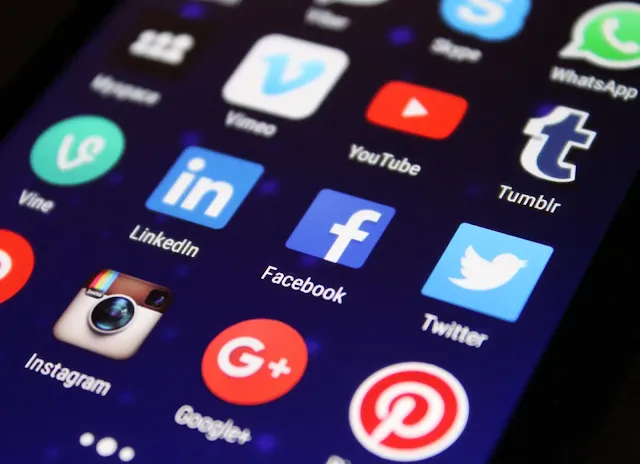Hello Beautiful People,
We all know that social media can be a double-edged sword when it comes to mental health. On the one hand, it can be a great way to connect with people and share positive experiences. On the other hand, it can also increase negative emotions and trigger unhealthy comparisons.
So Let's get Started with Today's blog

INTRO
In the age of digital connectivity, social media has become an integral part of our daily lives. From sharing life updates to staying informed about global events, these platforms offer a countless number of opportunities for connection and expression. This article delves into the complex relationship between social media and mental well-being, exploring both the positive and negative aspects of this digital phenomenon.
THE POSITIVE SIDE :
Social media has undeniably brought people together, allowing users to connect with friends, family, and like-minded individuals across the globe. These platforms provide a space for sharing experiences, and encourage the development of community and support. For individuals struggling with mental health issues, social media can serve as a valuable resource for finding unity, empathy, and understanding. Online communities dedicated to mental health awareness and support have empowered many to speak openly about their struggles, reducing stigma and encouraging open dialogue.
Moreover, social media acts as a powerful tool for spreading information about mental health, offering resources, and promoting awareness. Influencers, celebrities, and organizations leverage their platforms to educate the public, break down stereotypes, and encourage seeking professional help.
THE DARK SIDE :
 Without being prevented by the positive aspects, the impact of social media on mental health is not without its drawbacks. One of the most significant concerns is the potential for negative social comparison. Users often curate their online characters, showcasing the highlight reel of their lives. This can create an unrealistic standard for others, leading to feelings of inadequacy, low self-esteem, and even depression.
Without being prevented by the positive aspects, the impact of social media on mental health is not without its drawbacks. One of the most significant concerns is the potential for negative social comparison. Users often curate their online characters, showcasing the highlight reel of their lives. This can create an unrealistic standard for others, leading to feelings of inadequacy, low self-esteem, and even depression.
The constant exposure to carefully curated images and lifestyles can contribute to the development of a phenomenon known as FOMO (Fear of Missing Out). This fear can fuel anxiety and a sense of social isolation, as individuals compare their real lives to the idealized versions presented on social media.
Cyberbullying is another serious issue that affects mental health. The anonymous information provided by online platforms can encourage individuals to engage in harmful behaviors, causing emotional distress and, in extreme cases, leading to severe consequences such as self-harm or suicide.
SOCIAL MEDIA & BODY IMAGE :
The impact of social media on body image is a particularly widespread concern. The widely spreading presence of images depicting unrealistic beauty standards can contribute to the development of body dissatisfaction, eating disorders, and a distorted self-perception. The constant pressure to live up to society's standards of beauty can be damaging to one's mental health.
Strategies for Maintaining Mental Health in the Digital Age:
1. Mindful Consumption: Be mindful of the content you consume on social media. Unfollow accounts that make you feel inadequate and seek out content that promotes positivity and authenticity.
2. Digital Detox: Consider taking regular breaks from social media to reduce the constant exposure to curated content and to focus on real-life experiences.
3. Set Boundaries: Establish clear boundaries for social media use, both in terms of time spent online and the type of content you engage with.
4. Promote Positive Engagement: Actively contribute to positive online communities that support mental health awareness and provide a platform for open discussions.
5. Seek Support: If you find yourself struggling with mental health issues, reach out to friends, family, or mental health professionals. Social media can be a source of support, but it should not replace professional help when needed.
CONCLUSION
The impact of social media on mental health is a many sided and evolving topic. While these platforms offer never done opportunities for connection and information-sharing, they also present challenges that can affect individuals' mental well-being. By encouraging the development of a culture of responsible use, promoting positivity, and prioritizing mental health, we can navigate the digital landscape with greater awareness and resilience.
So That's it for Today's blog
Hope You Like IT.



Comments
Post a Comment